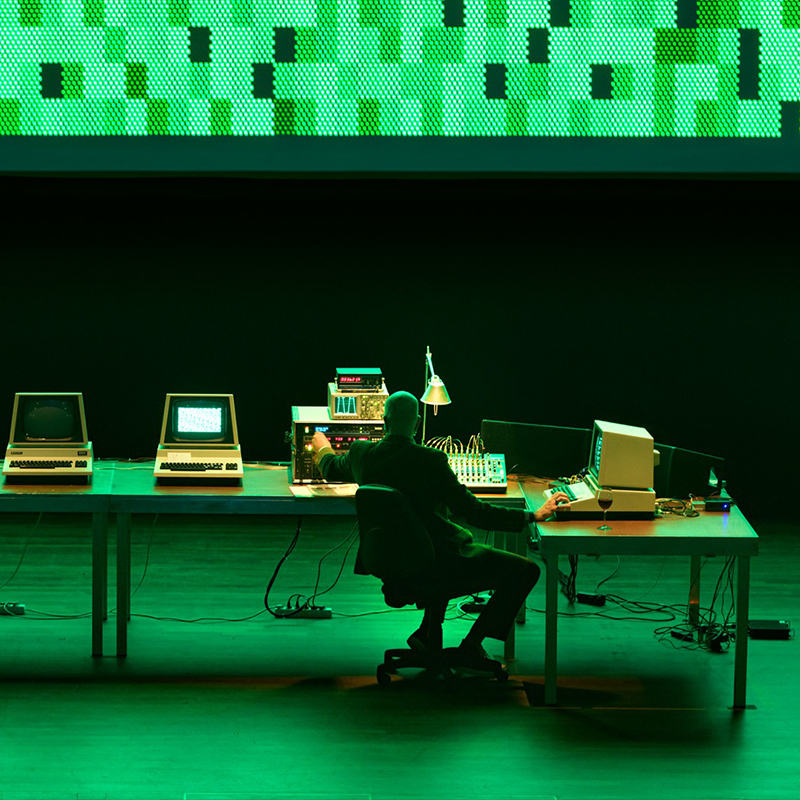The CBM 8032 AV project is an exploration of the beauty of simple graphics and sound, using five Commodore CBM 8032 computers. The work is about the ambivalence between a contemporary aesthetic and the use of obsolete and limited technology from 40 years ago. Everything presented within the project could have already been done in the 1980s. However, without today’s cultural backdrop, it would not have been possible to come up with the artistic ideas driving it.
History
The CBM 8032 computers used for this project are the grandfathers of the successful C-64, and directly descend from the mighty Commodore PET 2001 series. Unlike the C-64 they had no sound chip and neither colour nor pixel graphics, just text and symbols. They were used in labs, in offices and for education. They are iconic objects of the beginning of the personal computer era, and they are driven by the same CPU which was also used in the Apple I and Apple II computers.
The MOS 6502 chip was designed to be an “affordable” microprocessor. It hit the market in 1976.
The Commodore CBM 8032 itself was released in 1980, at a point in computer history when a lot of ground-breaking work was being done that shaped the world we live in. The invention of the microprocessor a decade earlier ultimately led to such diverse products as game consoles, digital synthesisers and smarter washing machines.
The development turned hippies into computer nerds, and later into billionaires. It has impacted popular culture on many levels, from cinema to poetry, from music to graphic design.
Schedule:
>20:30: Doors
>21:00: Show
Duration:
60′
Location:
Grande Salle
Prices:
Presale (fees included) : 9€ (< 26 years old) / 12€
Doors: 12€ (< 26 years old) / 16€
Ticket valid for all events taking place in the Grande Salle and the Klub on Friday 24.02 from 21:00 (Robert Henke, Nik Colk Void, francis99).
Robert Henke
Robert Henke is a digital artist. His music is inspired both by radical club culture and contemporary music, and his project Monolake became one of the key icons of a new electronic music scene emerging in Berlin after the fall of the Wall. His audiovisual work includes algorithmically generated images, laser installations, and the artistic exploration of early personal computer hardware.
Robert Henke is one of the main creators of Ableton Live, a software which has completely redefined the performance practice of electronic music. He has held teaching positions at the Berlin University of the Arts, the Center for Computer Research in Music and Acoustics (CCRMA) at Stanford University, and the Institut de Recherche et Coordination Acoustique/Musique (IRCAM) in Paris.
His installations, performances and concerts have been presented at Tate Modern in London, Centre Pompidou in Paris, Palazzo delle Esposizioni in Rome, Le Lieu Unique in Nantes, PS-1 in New York, MUDAM in Luxembourg, MAK in Vienna, Palazzo Grassi in Venice, the Art Gallery of New South Wales in Australia, KW Institute for Contemporary Art in Berlin, STRP Biennale in Eindhoven, and at countless festivals including Unsound, CTM, MUTEK, Sonar, New Forms Festival.

